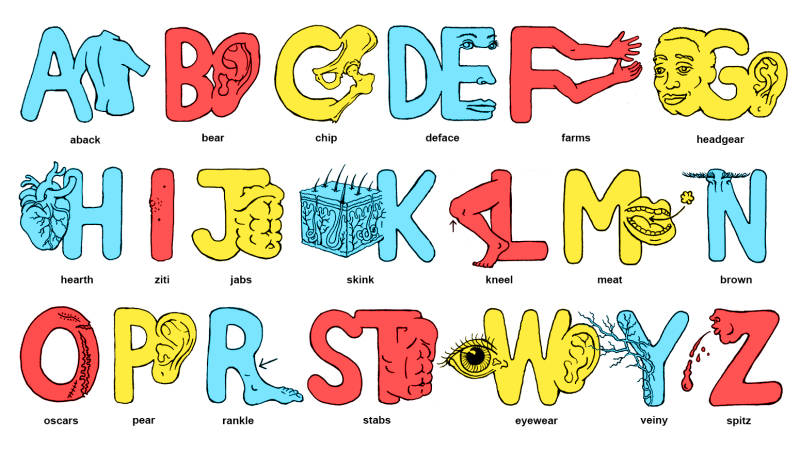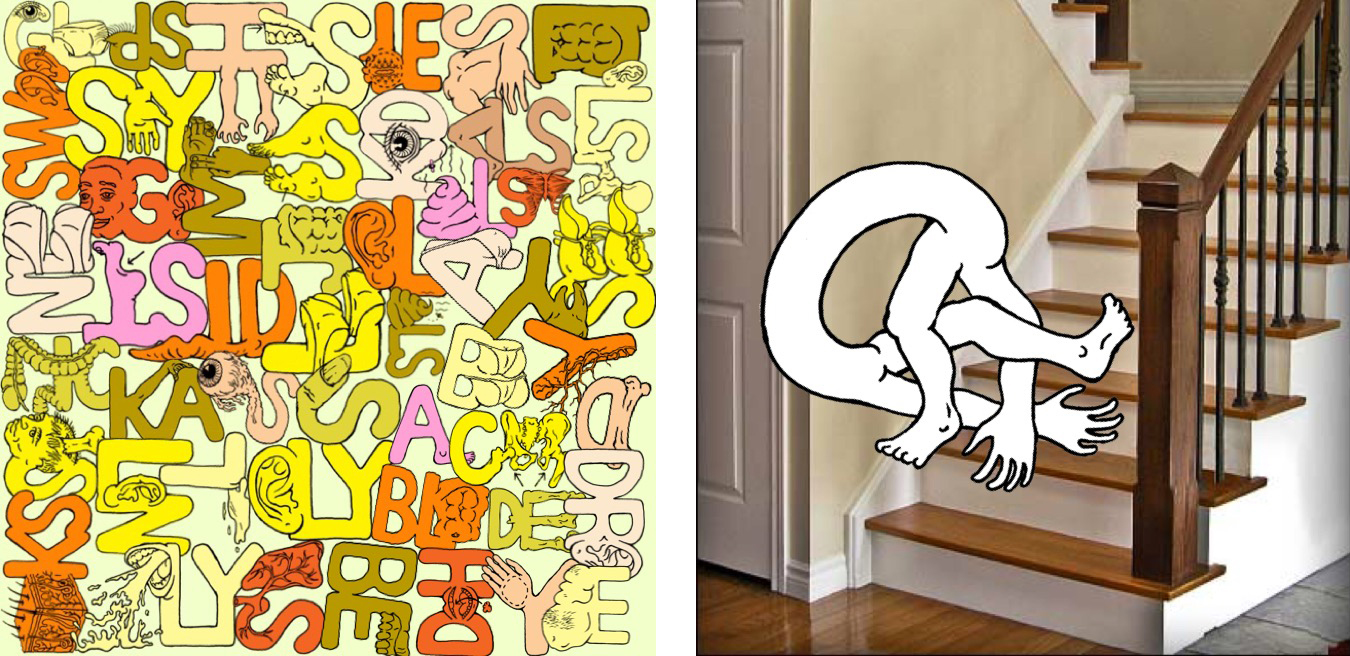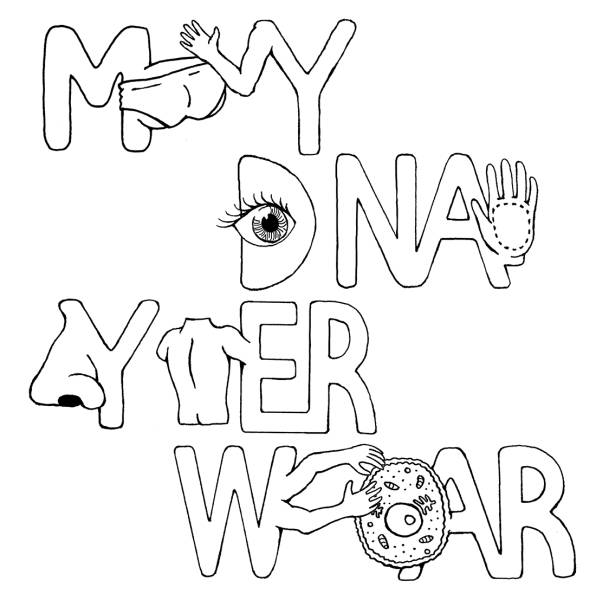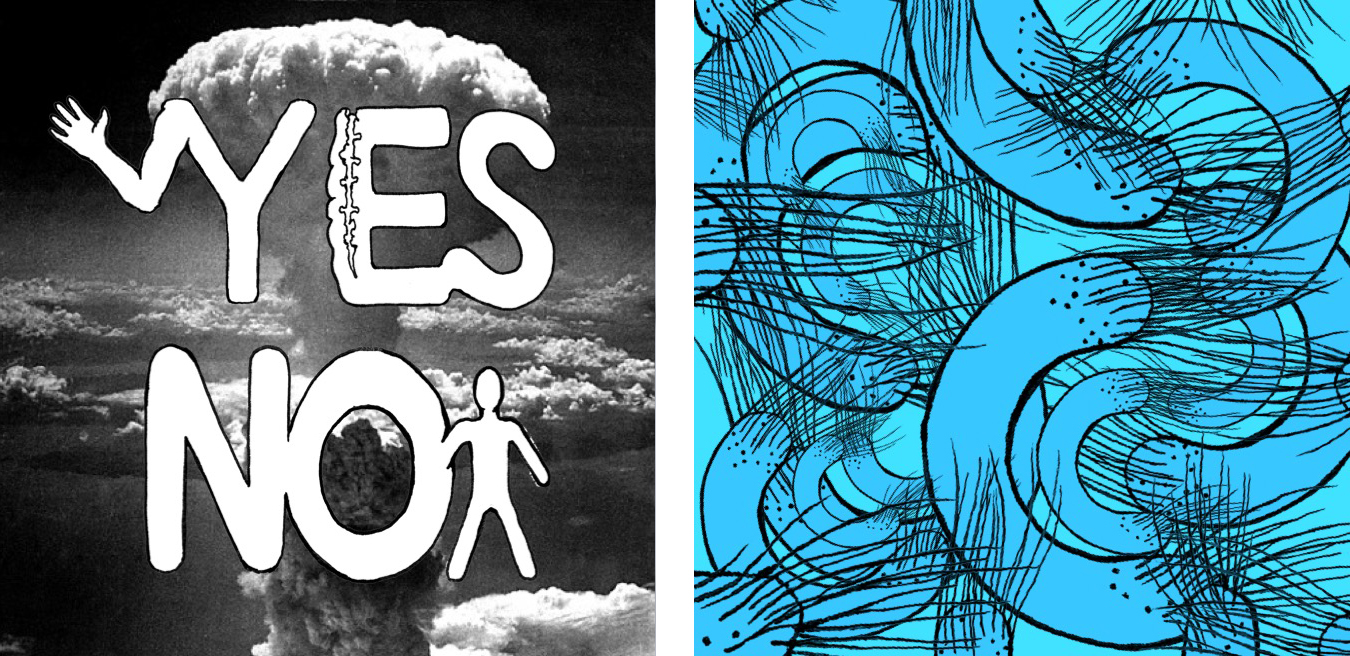Ever wonder how certain words came into being? Why are there “ears” in wears, “hips” in ships, and “abs” in jabs? Karma, flips, climbs and shine — the English language is full of words containing body parts that seemingly have nothing to do with those arms, lips, limbs or shins.
Leaving those questions for the etymologists, Los Angeles-based poet Tom Comitta and San Francisco-based artist George Pfau instead chose to focus on the opportunity for wordplay within this found “body language.” And rebuses — puzzles where words are represented by combinations of letters and pictures — prove an ideal format for their collaborative interest in word and image.
With the help of app developer Franky Aguilar, Comitta and Pfau created BlabberLab, available Tuesday in Apple’s App Store. Its functionality should be familiar to anyone who’s used a sticker app before: toggle through two sliding bars of rebus options, then position, resize and select their colors, and publish the finished product via social media or a messaging service of your choice.
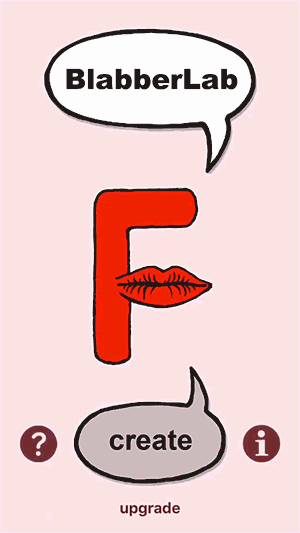
The resulting “BlabberLabs,” as the two creators call them, are visual and linguistic puzzles, strange attempts at communication with a limited vocabulary of about 400 hand-drawn symbols. The graphic elements of each design — the opportunity for surprising color choices, humorous photo overlays and nonsensical combinations — make the app as much about art as it is about language.
